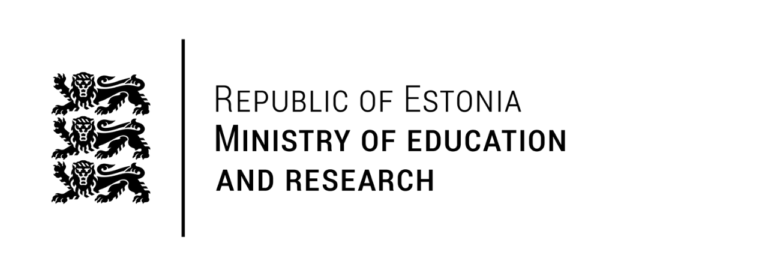With its rich history of digital solutions and e-governance, Estonia has invested heavily in digital services, including career guidance. Let’s look at how Estonia integrates digital skills into lifelong learning and uses online career guidance tools.
Authors: Kristina Orion, Estonian Unemployment Insurance Fund; Margit Rammo, Euroguidance Estonia, Estonian Education and Youth Board
The Estonian Unemployment Insurance Fund (EUIF) provides active and passive labour market measures, including career information services and career counselling nationwide. Euroguidance Estonia focuses on the competence development of career guidance professionals, providing services to Estonians and professionals abroad.
Estonia has a rich history of digital solutions and e-governance, dating back 20 years with a step-by-step approach. The country has invested heavily in digital services due to its small population, limited budget, and finite manpower. Online tools are used to improve the digital skills of the entire population, and the digital culture is integrated into the learning process at all educational levels and in all curricula.
The state, for its part, guarantees digital learning resources (e-textbooks and workbooks, open learning materials, etc.) for achieving the goals and learning outcomes set in the curricula of primary, secondary, and vocational schools. This includes ensuring every student has access to a digital device to access the modern digital infrastructure. To achieve this, digital competence assessment and recognition systems are created and implemented.
Digital Solutions and Lifelong Guidance
Estonia has also adopted a lifelong learning strategy because it understands that the private sector’s expectations towards the labour force continue to change. Thus, state and private sector companies offer a variety of (often free) IT courses for enthusiasts of any age. This allows people to educate themselves and increase their digital skills while making it easier to make the necessary changes in their careers.
Career guidance practitioners use various information and communication technology solutions daily. The ICT solutions used can be broadly divided into the following two groups:
- for service provision, including web pages, databases, educational software, games, social media channels, and e-tests; and
- for internal processes, including documentation management, customer management, feedback solutions, information exchange in cloud-based solutions, and e-learning environments.
Practitioners are both users and creators of new values through ICT solutions. Virtual activities, such as E-schoolbag, are used to promote career development. In the education sector, the central portal to support individuals’ career development is edu.ee, which gives an overview of learning opportunities and labour market information. Both young people and adults, as well as teachers and other professionals, access information about the education system and institutions, curricula, certificates, occupations, qualifications, and the need for labour and skills.
The EUIF provides career information services and counselling through minukarjäär.ee (My Career), which recently underwent a thorough overhaul to create a website supporting independent career planning for youth and adults. E-guidance via email, telephone, and Skype has a long history at the EUIF.
The Interactive Career Centre in Tallinn allows clients to use interactive digital tools on-site to discover their skills, interests, and career pathways. This aims to support independent career planning and provide access to additional information and counselling from career specialists if needed. Digital tools are not only used for virtual counselling but also for on-site use, making career counselling more interactive and educational.
Role of Career Specialists
Estonia has no academic qualification for career specialists, and their professionalism is developed mainly through courses offered by various training providers. Higher education institutions provide specific micro-credentials, and continuous professional training and peer coaching are available to ensure the development of practitioners’ professional competencies. The occupational qualification system is also established to provide the professional development of practitioners in career guidance.
The world of career counselling is evolving rapidly, and digital tools are becoming increasingly important in providing an interactive and educational experience for clients. Digitalisation and internationalisation highlight the need to develop the competencies of career guidance professionals. By providing clients with the support and guidance they need to make informed career decisions, career specialists play an essential role in shaping the future of the workforce.
This is a summary of the speech held during the Austrian Euroguidance Conference 2022 "Online Guidance - Building Relationships in Digital Settings". A more comprehensive article has been published on the webpage of the European Commission.





